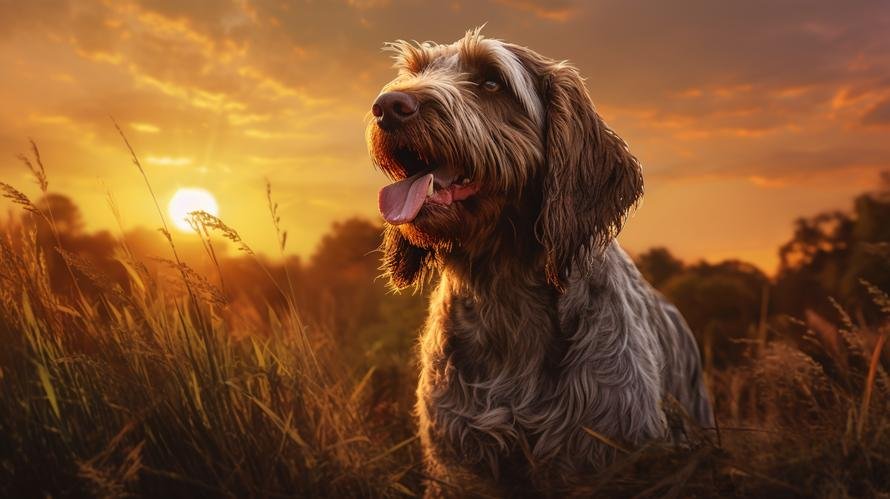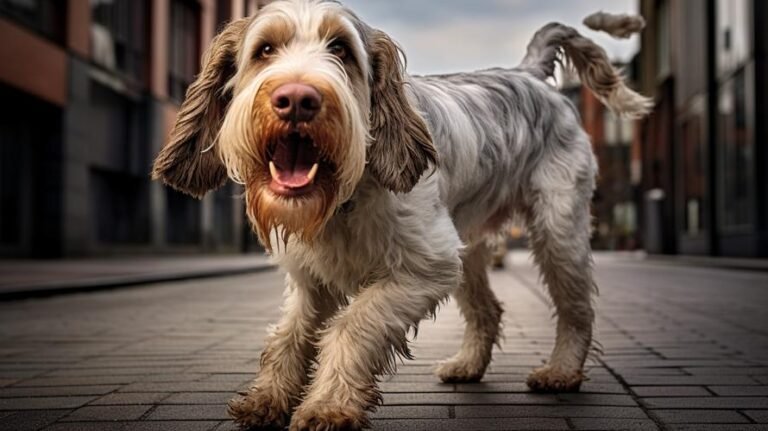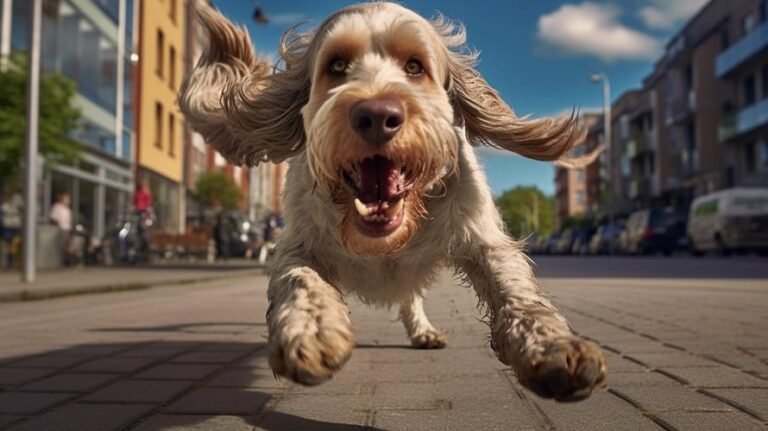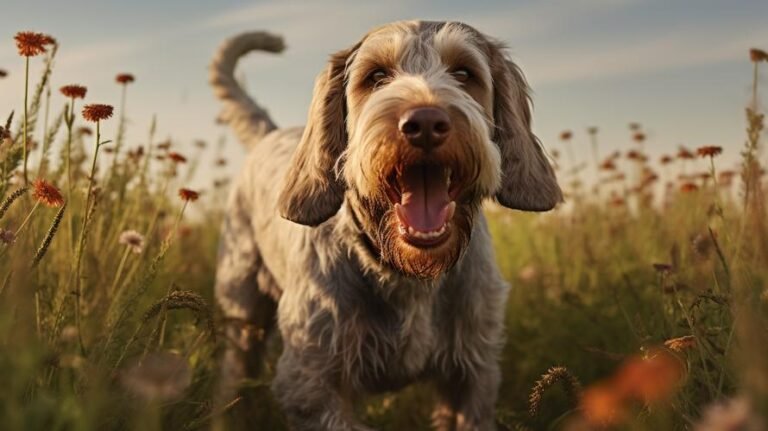In the dim light of a typical rural Italian evening, you’ll often see a Spinone Italiano dog happily bounding around the vineyards lovingly aged to produce the perfect Barolo wine. These Italian dogs are known not just for their lively spirit, but also for their lustrous wiry coat, soulful eyes, and their undying love for the outdoors. If you own an adorable Spinone Italiano, it comes as no surprise that you are enthralled with their sparky energy and unique charm, and you want to do your best to keep it healthy and vibrant.
While discussions about a canine’s diet are generally extensive, there’s a burning question in most Spinone Italiano owner’s mind – should their loving companions eat grain-free food? This growing trend among pet owners has been sparked by numerous claims that grains are hard for dogs to digest and may even lead to allergies. However, before we jump into conclusions and prescribe an all-meat diet for our four-legged friends, let’s unwrap this highly debated topic together, shall we?
Dogs, just like their wildly fascinating wolf ancestors, are carnivorous by nature. Wolves would hunt their prey in the wild, typically other animals, which primarily fueled their meat-based diet. However, over centuries of domestication, dogs, including the Spinone Italiano, have evolved to eat a more varied diet, which can include grains.
Grains like corn, wheat, and barley provide essential nutrients like proteins, vitamins, and minerals that aid in your dog’s overall health. They keep your Spinoni’s skin healthy, enhance their immune system, and contribute to a healthy gastrointestinal tract. But these grains also contain gluten, which has been identified as a potential trigger for allergies in some dogs.
Here’s where it gets interesting. Research shows that grain allergies in dogs are infrequent. An extensive study by the University of Copenhagen found that out of nearly 470 canine test subjects, only 7 showed symptoms of wheat intolerance, which means just about 1.5%! Other studies show similar results – grain allergies in dogs are quite a rarity!
This makes us question the whole grain-free fad. If grains aren’t causing allergies, why eliminate them? The answer lies within a type of grain known as corn. Corn, as a grain, is high in carbohydrates and lower in protein content. Dogs, being primarily carnivorous, require higher protein content for optimal health. Corn, therefore, isn’t the best source of nutrition for them. But more often than not, dog food companies may pack their products with more corn and less meat, putting a question mark on the food’s nutritional quality.
Another aspect to consider in the grain-free meals is the novel use of legumes like peas or lentils. It might be surprising to learn that dogs have difficulty digesting certain types of legumes, which can lead to gastrointestinal issues. The Food and Drug Administration (FDA) also warned about the potential link between grain-free diets, specifically those featuring legumes, and a type of heart disease known as Dilated Cardiomyopathy in dogs.
After digesting all of this information, what’s the conclusion then, should your Spinone Italiano eat grain-free?
The golden key to any dog’s diet, including our very Italian Spinone, is balance. A grain-free diet may not necessarily be harmful, but it should not lack essential nutrients either. The best course of action would be to assess the dog’s health, lifestyle, activity levels, and potential allergies, if any. Consulting with a veterinarian or canine nutritionist can provide a clear picture of the suitable diet for your furry friend.
Remember, grain-free or not, your Spinone Italiano should receive a complete and balanced diet. After all, a healthy dog is a happy dog!
The world of canine nutrition is a fascinating one, loaded with facts and myths alike. As dog owners, it’s up to us to dig into the truth and make informed decisions about our pet’s diet. The health and happiness of your Spinone Italiano depend on it. So feed them with lots of love, a balanced diet, and ample room to play in the beautiful outdoors, and they will thank you with their cheerful barks and heart-warming companionship!



